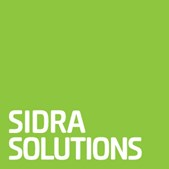Data and Digital Collaboration
The Session showcases three novel examples of Data and Digital Collaboration models, namely, CYCLOPS, RoadProd VM and TransDem that illustrate the current state of practice in the field and trends for future developments.
Session Outline
- Session Chair - David Nash, SIDRA Solutions
- Guillame Paix, SYSTRA - CYCLOPS: planning cycling infrastructures through better modelling and digital collaboration
- Mike Kenny, MetroCount - RoadPod® VM provides rapid solution in Western Australia’s Remote North
- Jack Jin, TransUrban - TransDem: A Pioneering Validation and Disaggregation Model for Enhanced Small-Area Transport Planning
Guillame Paix, SYSTRA - CYCLOPS: planning cycling infrastructures through better modelling and digital collaboration
Guillame Paix
SYSTRA
Guillaume is leading SYSTRA ANZ’s Transport Planning team. He has been involved on several strategic transport planning studies as both a project manager and a technical lead.
Co-Author(s)
Chris Donaldson | SYSTRA
| Chris Donaldson is a principal consultant at SYSTRA with extensive experience in both modelling and designing for active travel. With strong geospatial and numerical skills, as well as cycling experience across a range of countries, he brings unique perspectives to cycle planning. |
CYCLOPS: planning cycling infrastructures through better modelling and digital collaboration
Cycling has been a neglected mode of transport for too long. Under a climate emergency and with an ongoing health crisis, we must adapt our mobility strategies in ways that improve our cities’ liveability, sustainability, and mobility. This requires more cycling, but cycle planning and comprehensive socio-economic analysis have lagged behind approaches for other modes. SYSTRA’s digital platform CYCLOPS aims to bridge this gap by better modelling cycling benefits. In this platform all modelling datasets for cycling are integrated into one single environment and new cycling schemes can be assessed within minutes. During this session we will present our lessons learnt developing and using this tool in Australia and New Zealand.
Mike Kenny, MetroCount - RoadPod® VM provides rapid solution in Western Australia’s Remote North
Mike Kenny
MetroCount - CEO
Mike Kenny is the CEO and Managing Director of MetroCount, managing offices in Australia (HQ), London, Rotterdam and Maryland (US).
He is an Electronic and Traffic Engineer, a Chartered Professional Engineer with membership and this continuous qualification from Engineers Australia since 1985, and a Member of the global Institution of Electrical and Electronic Engineers (MIEEE).
RoadPod® VM provides rapid solution in Western Australia’s Remote North
Main Roads WA needed to install a traffic counting solution as a back-up in place of several RoadPod® VP (Vehicle Piezo) sites that had failed due to flooding. The extensive installation normally required to replace the Piezo-electric sensor strip sites meant that another faster deployment solution was to be investigated. The rapid installation process of the RoadPod VM provided the perfect solution.
Jack Jin, TransUrban - TransDem: A Pioneering Validation and Disaggregation Model for Enhanced Small-Area Transport Planning
Jack Jin
Transurban - Lead Analyst - Land Use
Dr. Jack Jin is renowned for his expertise in land use analytics and transport modeling. Earning his PhD from Queensland University of Technology, he soon joined Transurban, a global leader in toll road networks. As their Lead Analyst for Land Use, Jack has enhanced data integration and refined transport models. His innovative approaches, coupled with deep insights into urban transport, have led to notable advances in the field. Beyond his primary duties, Jack collaborates with industry colleagues, sharing knowledge and working together to address urban transport issues.
TransDem: A Pioneering Validation and Disaggregation Model for Enhanced Small-Area Transport Planning
Small area land use data is a critical dataset in transport models. It is often undertaken by a planning or economics team with the aim to blend multiple datasets into a future land use forecast.
The time-sensitivity and complexity of these datasets results in control total or sense-check errors. Transurban found it necessary to create a system that not only identified the error but was rapid and enabled faster turnaround time. There was also the need to have this data rapidly disaggregated to levels below the delivered SA2 level.
TransDem is Transurban’s validation and disaggregation modelling system. It offers rapid validation and error checking of consultant land use datasets and a sophisticated disaggregation system that enables land use data to be modelled to a smaller level than Mesh Block, before being aggregated back up to the travel zone. It also offers weighted concordance capabilities between any ASGS geography.














